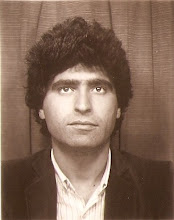A Short Analysis of
Bernard Schlink's
The Reader
der Vorleser
The Reader is a novel that addresses the generation gap of Germans after the second World War. It begs the question of how it is the children of those Germans implicated in the Holocaust, whether directly involved, or placidly docile about it, should feel about them.
The book is narrated by a German man named Michael, looking back on his life. Sick with Tuberculosis at 15, he falls ill and is rescued by a street conductor named Hanna. Eventually they become lovers. It is written with such consideration for the characters, that the reader can't help but understand Michael's enraptured passion for Hanna. They develop a habit of having Michael read aloud to Hanna. Then one day, with no warning, Hanna disappears.
Years later, a cynical University student studying for the bar, Michael and his classmates attend Nazi war trials. Who should he see but Hanna, being tried for a horrific crime she committed while working as a prison guard at a death camp. Although, never speaking with Hanna, Michael attends every day of the trial and becomes invested in the trial. He is tortured by what Hanna has done and by that he loves her so much. Is it a crime to love a criminal? Through this trial, he realizes that Hanna is illiterate, and that because of her unwillingness to unveil this secret of hers she is incapable of defending herself at the trial. The becomes a scapegoat for the other people involved in the crime and is sentenced to life imprisonment.
Years pass and Michael has a string of unfeeling affairs. He marries, has a child, divorces. He begins sending Hanna tapes of himself reading books to her. While in prison, Hanna borrows books from the prison library and, following along with the text, manages to teach herself to read and write. She writes to him, but he never replies; only sends more tapes. When she is to be released early due to her good behavior in prison, Michael reluctantly agrees to arrange a living and work situation for her. On the day of her release she hangs herself.
The Reader deals with the guilt felt my those who were born after the crimes of their forefathers. Although, they are not directly involved in the crimes they must come to some sort of balance between condemnation and understanding. Are they able to be understanding while still being moral? Or should all perpetrated in the Holocaust be condemned for their part in it? Michael is torn by this when he discovers that the person he loved had so implicitly followed orders to send people to their deaths.
The book also deals with the topic of illiteracy. While in prison, after Hanna learns to read and write, she reads a number of books written by prisoners in the camp. It is strongly implied that, due to her ability to read about the victims life, she felt guilt-ridden and that that is what pushed her towards suicide.

No comments:
Post a Comment